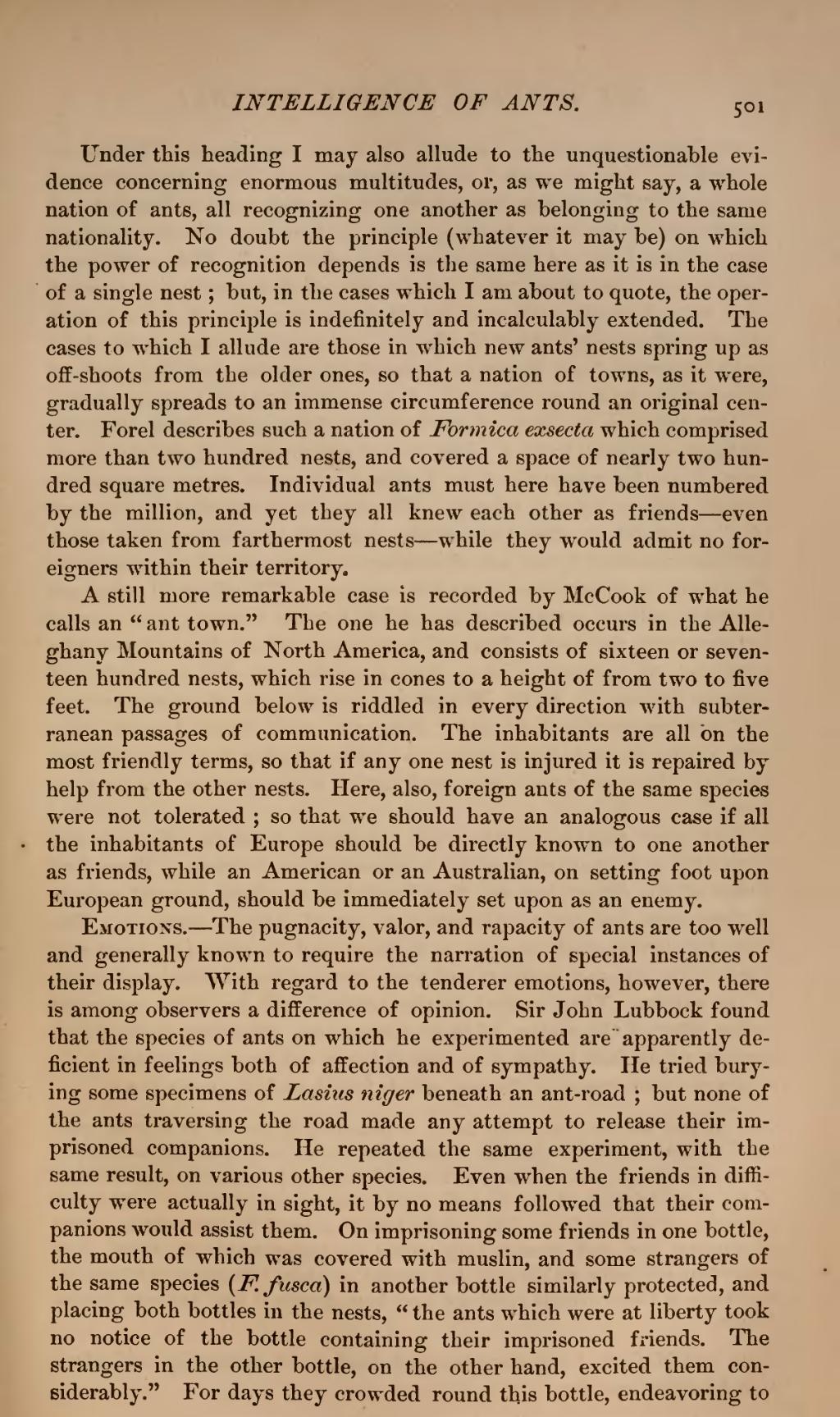Under this heading I may also allude to the unquestionable evidence concerning enormous multitudes, or, as we might say, a whole nation of ants, all recognizing one another as belonging to the same nationality. No doubt the principle (whatever it may be) on which the power of recognition depends is the same here as it is in the case of a single nest; but, in the cases which I am about to quote, the operation of this principle is indefinitely and incalculably extended. The cases to which I allude are those in which new ants' nests spring up as off-shoots from the older ones, so that a nation of towns, as it were, gradually spreads to an immense circumference round an original center. Forel describes such a nation of Formica exsecta which comprised more than two hundred nests, and covered a space of nearly two hundred square metres. Individual ants must here have been numbered by the million, and yet they all knew each other as friends—even those taken from farthermost nests—while they would admit no foreigners within their territory.
A still more remarkable case is recorded by McCook of what he calls an "ant town." The one he has described occurs in the Alleghany Mountains of North America, and consists of sixteen or seventeen hundred nests, which rise in cones to a height of from two to five feet. The ground below is riddled in every direction with subterranean passages of communication. The inhabitants are all on the most friendly terms, so that if any one nest is injured it is repaired by help from the other nests. Here, also, foreign ants of the same species were not tolerated; so that we should have an analogous case if all the inhabitants of Europe should be directly known to one another as friends, while an American or an Australian, on setting foot upon European ground, should be immediately set upon as an enemy.
Emotions.—The pugnacity, valor, and rapacity of ants are too well and generally known to require the narration of special instances of their display. With regard to the tenderer emotions, however, there is among observers a difference of opinion. Sir John Lubbock found that the species of ants on which he experimented are apparently deficient in feelings both of affection and of sympathy. He tried burying some specimens of Lasius niger beneath an ant-road; but none of the ants traversing the road made any attempt to release their imprisoned companions. He repeated the same experiment, with the same result, on various other species. Even when the friends in difficulty were actually in sight, it by no means followed that their companions would assist them. On imprisoning some friends in one bottle, the mouth of which was covered with muslin, and some strangers of the same species (F. fusca) in another bottle similarly protected, and placing both bottles in the nests, "the ants which were at liberty took no notice of the bottle containing their imprisoned friends. The strangers in the other bottle, on the other hand, excited them considerably." For days they crowded round this bottle, endeavoring to
